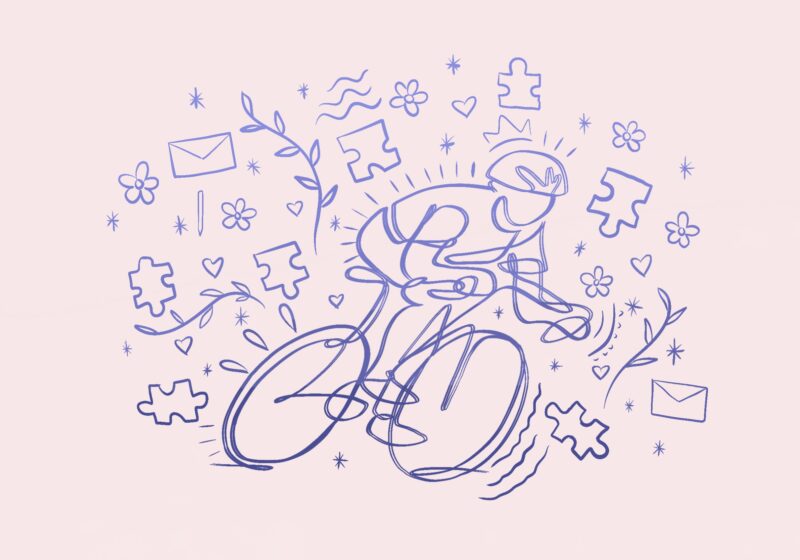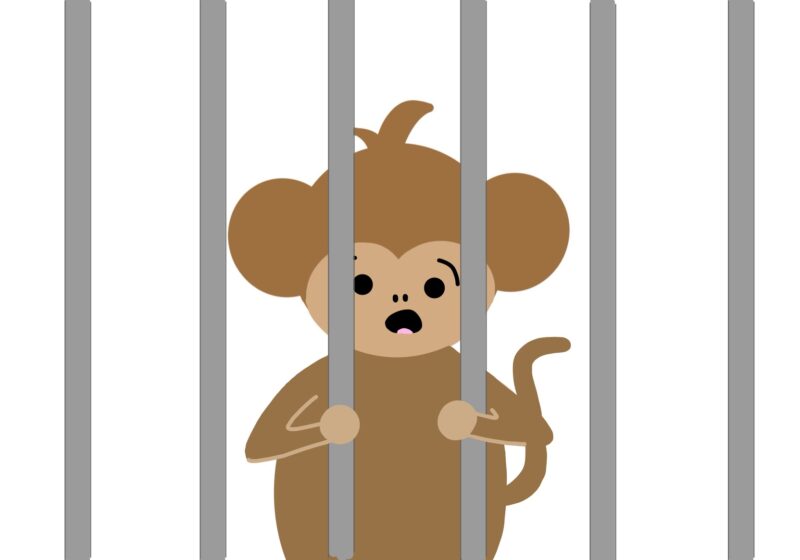I’ve moved five times in my life. The first two places were in Illinois, where I was born and where the tap water tasted like dirt, according to my parents. The other four places were all around the same small patch of Central Jersey — “Yosko” was where I rode tricycles up and down the little winding pavement to the apartment door; “Homestead” was where I learned to ride a bike with two, then one, training wheel; “Central” was where the training wheels came off; and “Center” was where I could finally say, “I’m biking home.”
The number of years grew and the number of wheels I rode on fell. Vague, blurry memories of the brown-brick apartment complex the afternoon bus used to drop my first best friend off at before I moved away — I don’t know if I even said goodbye. Then I shifted into a new school district: 25 new faces. 25 new personalities. 25 new possibilities. On screens, I watched kids with pigtails and toothy grins run across the street and take turns pushing each other on swings; in paperbacks, I read about best friends who whispered secrets in the back of the bus, girls who fell in love with the boy next door.
As I grew up and moved away, the fictional and real worlds I tended to held a stark contrast — there were no more bus-best-friends, no boy next door. An infinite gorge of detachment, no matter how hard I tried to bridge it, tied to the fact that because I had gotten there after everyone else, I did not get there first. I was never there first. Because when you’re younger, being first is everything: being first means you get to decide the dynamics of your situation, tactically finetune the knobs of social circles. Being first gives you the first pick. Being first gives you power, power that I did not and could not seem to grasp.
And so I became an ever-evolving puzzle piece, the last one you put in to complete the picture — no matter if it’s a 200, 500, or 1000-piece puzzle. Like the piece with the frayed knob with the corner of Tinker Bell’s foot, or the edge of the Christmas sled peeled off to leave only the brown paper backing. I became a shape-shifter. A mold, a malleable thing that was able to fit not all, but many, open niches. Some people would say hardy and adaptable; I would say survival of the fittest. You learn what people like and what they don’t. You learn when to speak out and when to shut up. You learn how people treat you when they want something, how they discard you when you’re no longer useful.
There was a time in the fifth grade when we wrote plays and poetry and stood up in front of the class reading our work — a classmate of mine wrote about the things other people said about her and how she’d try to fix them. Someone didn’t like the way I smiled, she said. Someone didn’t like my laugh. Someone said that the things I said were too boring. My eyes watered — I stared in a sort of paralysis. But it went on: Smile nicer, the corners of her lips higher, she’d practice. Laugh at a different pitch. Think of more interesting things to say. Like the pre-stamped tear lines in the spiral-bound notebooks my poem was written on, I felt my heart rip along seams I didn’t know existed. Then, after she received some sympathetic “sorry’s” and an “aww, I didn’t know you felt that way” from the class, she shakily sat back down and I went up, rattling off some lines I’d written about wanting a cat. At that time, I didn’t know I was allergic. At that time, she didn’t know how much her words would still resonate with me to this day.
It’s difficult to be the last puzzle piece — to be the one who has to make things fit and make sense while the rest of the picture is already established, already complete. I feel hollow when I think about that day in English, because the assignment was meant to be a Fun poem, a Dumb poem, an Unimportant poem, and her words still plague me even behind the carefully constructed smile she wore while reading it aloud. It takes immense courage to stand up in front of people you know, people who have changed you, and tell them that you are hurt, that they’ve hurt you, and have those same people tell you that they’re sorry it has to be this way. But what if she had never gathered the courage to write that poem? What if I had been absent that day?
Moving has changed me — with each person I learned to stop relying on, with each wheel I graduated from. I feel grateful, because that poem verbalized the feelings I didn’t have words for at 10 years old. Once I could give language to these feelings, I learned to walk the tightrope; I learned to play the game. I learned not to be immature and naive.
But there’s a fleeting beauty in adaptability, in realizing that just because you can adapt doesn’t mean you have to, in the temporariness and whirlwind serendipity of it all. The people you laugh with, laugh at, or lock even the briefest second of eye contact with, are people — real people with real stories. They are people whose stories live not in their eyes where you can see but in the crumpled up verse they don’t dare to share with anyone else; in the hysterical midnight phone calls to their long-distance confidant; in the pain that is concealed under draped and rehearsed smiles, behind the facades and fronts.
Moving places, moving amongst people, has changed me. To be vulnerable with strangers, to protect myself from the friends they become. To trust wholeheartedly, or not at all. To love, and to unlove. How you fill in the gaps, or choose not to — matters.






